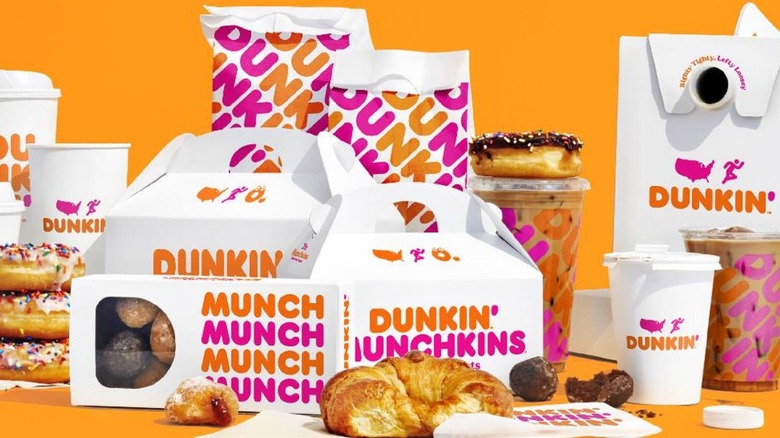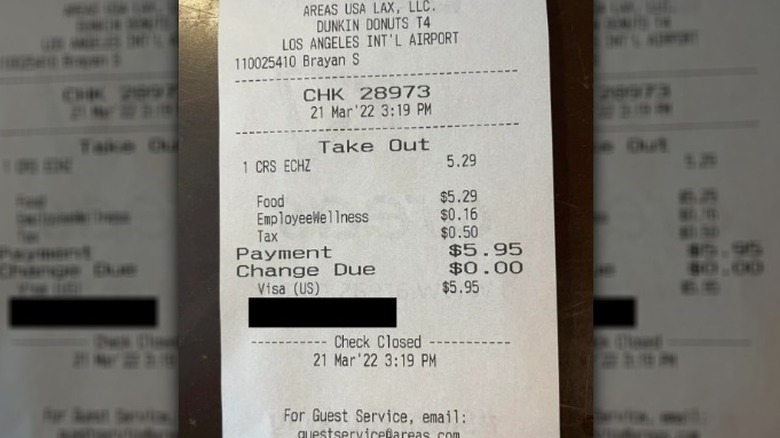The Dunkin' Receipt Charge That Left Reddit Confused
Checking the receipt after you've been shopping is an essential final stage of any transaction. It can feel a little snide, and basically shows that you don't have a lot of trust in the company, but if it saves a few cents, especially during the worst inflation in 40 years, it's definitely worth doing.
Reading receipts can result in financial surprises including items costing more than they were priced as, special offers that didn't go through at the checkout, and even unexpected surcharges. The latter was experienced by one Dunkin' customer, who took to Reddit to show what they had found.
The popular post, which received 1,600 comments so far, shows a receipt from a Dunkin' store at Los Angeles International Airport. The total bill was $5.95, made up of $5.29 for food, $0.50 in tax, and a mysterious $0.16 for an undefined "employee wellness." The receipt acknowledged a "3% employee wellness charge," but didn't appear to elaborate. Redditors took to the comments to explain what the extra cost relates to and many debated the merits of the wellness charge.
Wellness charges might be used to offset restaurant operating costs
According to commenters on the Reddit post, the surcharge isn't paid directly to Dunkin' employees, which triggers some annoyance. One replier cynically viewed the additional cost as a method "to raise money for the owners" and another added "So instead of them handling the 3% they're throwing it on the consumers. Nice!" Other opinions fill this comment section with the likes of "highly immoral," "disturbing," and "this should be criminal."
The OP discovered that a 3% wellness charge is added to all Dunkin' bills, but the cost "is not a gratuity payable directly to staff." MinnPost explains that the process of adding wellness surcharges is becoming more common in restaurants as employers seek to mitigate health care costs and minimum wage requirements.
Redditors query why an additional payment is necessary, suggesting it would be fairer to simply raise item prices. However, MinnPost reports that businesses would have to increase their prices by such a high amount to cover their costs that customers would likely stop visiting, so the wellness charge is seen as a subtle way to offset operating expenses.

